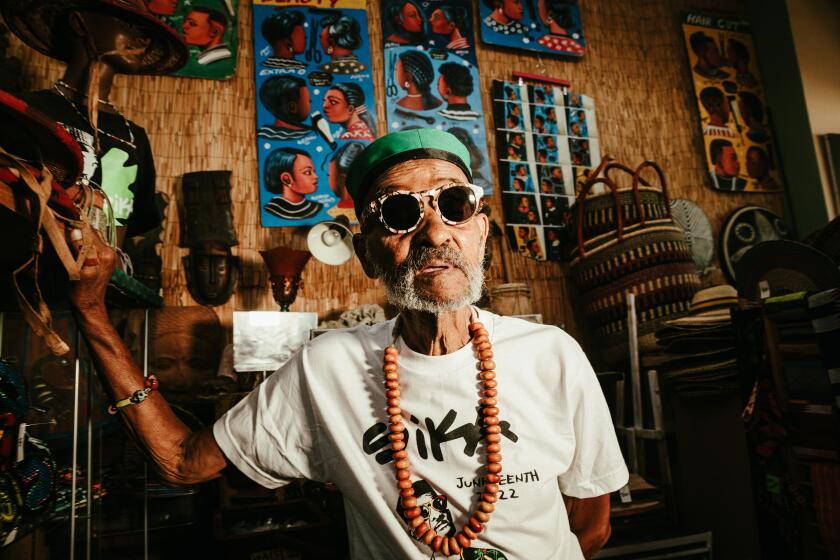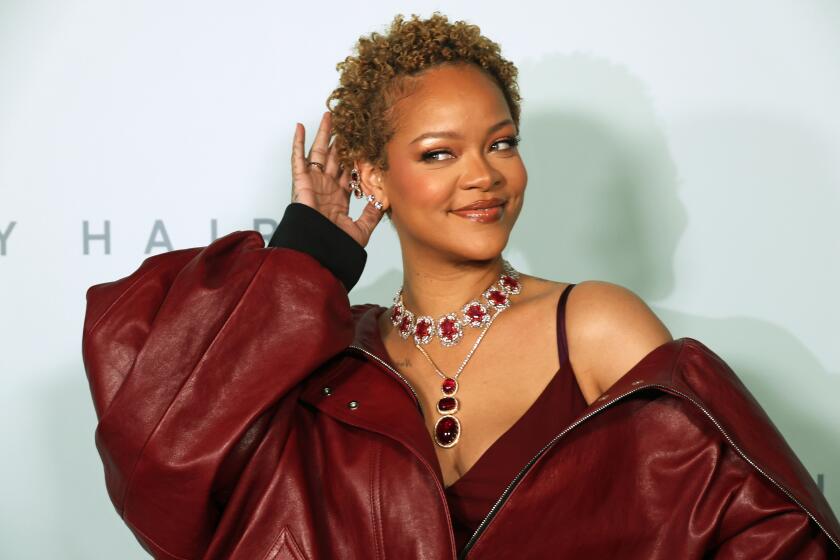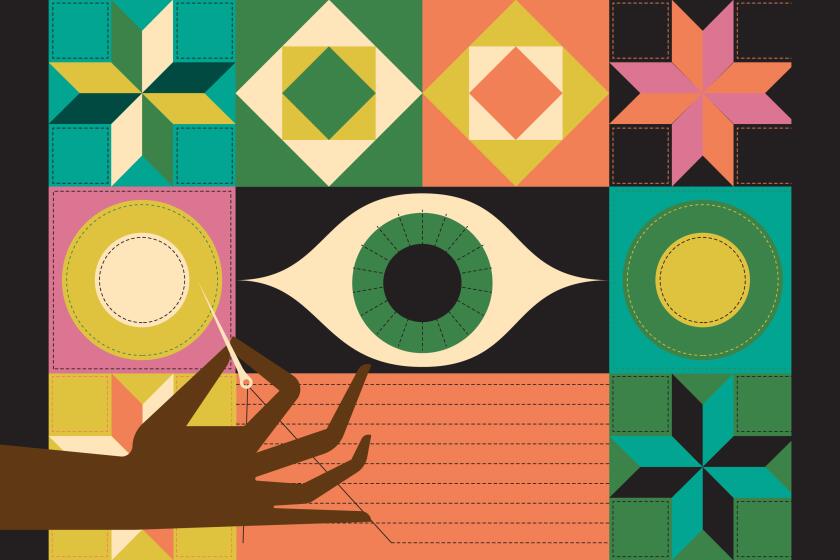Wear an Irregular Size? Keep Your Shirt On--Custom Shops Can Help
With his shirt sleeves hiked to the elbows, a pencil tucked behind one ear and a measuring tape slung around his neck, Ghassan (Jimmy) Kabartay looks every inch the tailor.
Kabartay, owner of Jimmy’s Custom Made Shirts in Orange, makes shirts “the old-fashioned way.” He and his co-workers measure each customer, make the patterns, cut the fabric and stitch the shirts together on industrial Singer sewing machines.
For men who can’t find suitable shirts off the rack, such custom shirt shops as Jimmy’s offer an alternative to mass-produced, sized-to-scale garments.
In Orange County, one can choose from small independent custom shirt shops, such as Jimmy’s and Newport Custom Tailors in Santa Ana, to company-owned chains that have smartly decorated stores, such as the Custom Shop Shirtmakers in South Coast Plaza, Costa Mesa, with its wood paneling and elegant fixtures.
No matter their decor, the shops can make shirts to fit men whose bodies don’t match the ready-to-wear industry’s universal measurement scale. For instance, according to the scale, a shirt with a 16-inch collar size would fit a 42-inch chest. Yet some men have necks that are wider or smaller than the corresponding chest size.
“The most obvious advantage to a custom shirt is the fit. If (your neck is larger than) the average collar size, a ready-made shirt can fit like a balloon,” says Dan Oftelie, designer for the Custom Shop Shirtmakers.
“A lot of guys have very athletic builds and even fitted shirts are too large,” adds store manager James Chadwick. “Many of them accept the fit even though it’s wrong.”
While ready-made shirts are sold according to collar and sleeve size, most tailors take at least 13 measurements to achieve proper fit.
Even if fit isn’t a problem, many style-conscious men order custom shirts because they can select from hundreds of fabrics, from cotton broadcloth with 50 single-ply yarns per inch to silky sea island cotton with 140 two-ply yarns per inch. At the Custom Shop Shirtmakers, they can leaf through handsome leather-bound books that have 175 fabric swatches.
They can also choose different shirt styles, including the type of collar and cuffs, the size of the pockets or the placement of monograms.
Kabartay advises his customers to select collars and pockets to fit their body types. A tall man, for instance, should have a longer tip collar to match his proportions. A small man should opt for a smaller pocket.
“A big pocket on a 5-foot person doesn’t look nice,” Kabartay says.
Orange County executives tend to favor shirts with standard business collars and French cuffs that can be fitted with cuff links for a more formal look, according to Tom Hoang, manager of Newport Custom Tailors. They also choose mostly solid white or blue cotton fabrics.
“They’re very conservative,” Hoang says. “Only a small percentage want stripes.”
More venturous types are trying shirts with tab collars that fasten in a loop at the throat, a look made popular by Giorgio Armani.
A well-made shirt should fit the customer perfectly, according to Hoang. The collar shouldn’t wrinkle or shrink after repeated washings. Seams along the shoulders and around the arm holes should lie flat and not pucker.
Chadwick suggests men choose shirt fabrics made with two-ply yarns because “they’ll last longer and feel better.”
Repeat customers are a large part of the custom shirt business. Once the shop has a customer’s measurements, executives who are too busy to shop or who hate going into stores can order shirts over the telephone.
“They’ll say, ‘This time I want to try a tab collar,’ or ‘Put the monogram on the chest instead of the cuffs,’ There are thousands of variations,” Chadwick says.
Tom James Co. in Garden Grove even sends a tailor to the customer’s home or office.
“We take their measurements right there and bring along a full line of fabric samples,” says Orvey Hampton, manager of Tom James.
“After that many of our customers shop by phone. They say, ‘Orvey, I need this same shirt in blue.’ Most guys would rather take a beating than go shopping.”
Cost of custom shirts is determined by the choice of fabric, and many tailors have a four-shirt minimum order.
Tom James Co. charges $50 to $130 a shirt, and there’s an extra cutting charge if fewer than four shirts are ordered. The Custom Shop Shirtmakers charges $49.50 to $99.50 a shirt, and there’s also a charge for small orders. Newport Custom Tailors charges $65 to $110 per shirt, but has no minimum order.
While the shirts typically cost more than most off-the-rack shirts, tailors maintain that superior fabrics and workmanship makes their shirts last longer. Moda Georgio, a custom shirt shop in Fashion Island, Newport Beach, puts a tag with the date on each of its custom shirts. Customers can then check the month and year when the shirt was made to see how long it lasts.
“Most of our shirts last four or five years,” says store manager Daniel Malventano.
The time for shirt orders to be filled varies from shop to shop. The Custom Shop Shirtmakers takes about six to 10 weeks for delivery because the shirts are made in the company’s New Jersey factory, while Newport Custom Tailors takes a week or two because the shirts are made on the premises.
Men might be able to find shirts cheaper and faster off the rack, but tailors say there are still plenty who prefer their hands-on method of making shirts.
“A couple of years ago I thought it would maybe fade away,” Hoang says. “But we’re still going. They keep coming back.”



